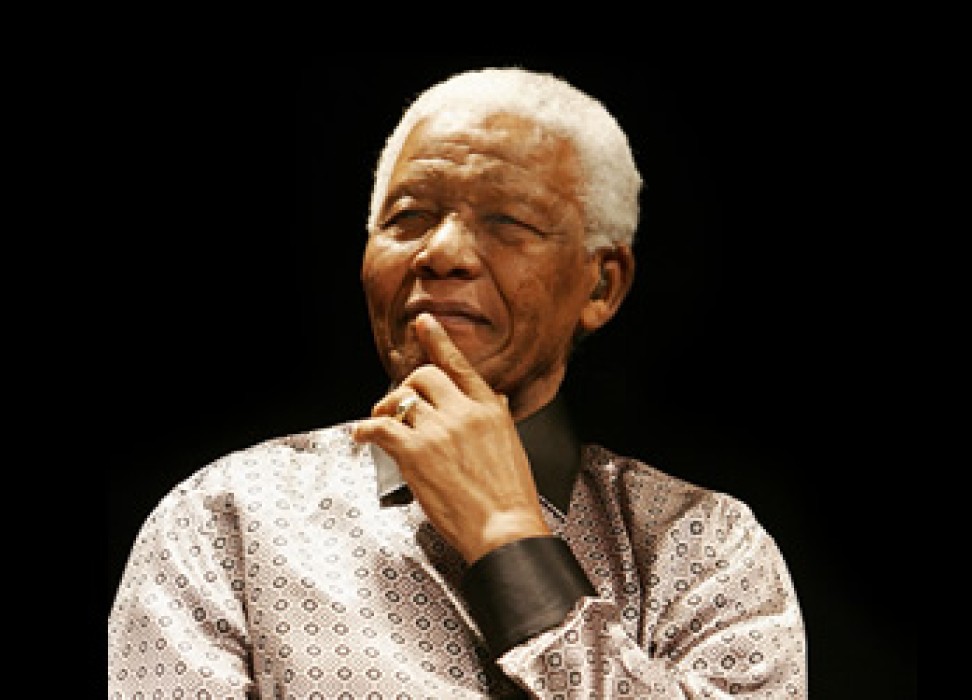A conversation on “kindness and generous accommodation”
07 March 2018

A hundred years ago, one of history’s greats, Nelson Rolihlahla Mandela, was born in South Africa where his rights were denied because of the colour of his skin.
Madiba, as he is affectionately remembered by his fellow countrymen and friends, spent most of his life in resistance to apartheid and in favour of a South Africa ruled by inclusion, kindness and tolerance.
His 27 years spent in isolation in the prison did not deter him from that goal, and in 1990 he welcomed his release with neither bitterness nor quest for vengeance on his captors. Instead, Mandela played a critical role in unifying his country’s peoples into one Rainbow Nation and his philosophy inspired masses globally.
“He stands among the great human rights leaders of our time,” said UN Human Rights Chief Zeid, who was recently invited, on the sidelines of the Human Rights Council in Geneva, to join a conversation to celebrate Mandela’s centenary and legacy.
Zeid was joined by Mary Robinson, former UN Human Rights Chief and a close friend of Mandela’s. Zeid pointed out that almost 20 years ago Robinson had worked with Mandela on a Vision Declaration for global tolerance and diversity, months before they hosted the first World Conference against Racism in Durban, South Africa, in 2001.
“Across the world, the searing injustice of racial prejudice and other forms of bigotry humiliate and endanger millions of people. Intolerance is deliberately fuelled by opinion leaders, to boost their personal ambitions,” Zeid said.
“There are many lessons that all of us can learn from the life of Nelson Mandela […] but one of the things he showed us was that it is always time to do the right thing,” he added.
Mary Robinson echoed Zeid’s sentiment by saying that Mandela had changed the course of history for the whole world. Robinson and Mandela were among the first Elders, a group of eminent global elders who have used their collective experience to help tackle pressing world issues.
Robinson recalled words spoken by Mandela that, she said, offer a valuable lesson for today’s increasing polarized and aggressive world.
“When he launched The Elders in Johannesburg on his 89th birthday, Madiba ended his address with this exhortation: “I believe that in the end, it is kindness and generous accommodation that are the catalysts for real change,”” she quoted.
Robinson added that Durban’s legacy reminded those who fight racism “that we must be resonant in confronting all prejudices in whatever form they rear their ugly heads and be guided by the humane principles of “kindness and generous accommodation which Madiba personified.”
Robinson also voiced concern about the rise of online hate speech. “To resist these racists, misogynists, nationalists and extremists, we must assert the values of Nelson Mandela as loudly and firmly as we can in all fora, both on and offline,” she said.
The Minister of External Relations of Angola, Manuel Domingos Augusto, revealed that he was one of the first African officials to have the privilege of working with Nelson Mandela. In 1992, the UN had chosen Angola to assist with South Africa’s transition away from the Apartheid system.
Augusto pointed out that Mandela’s vision was rooted in “Ubuntu”, a concept well known in Africa that denotes a sense of duty to support one another and which can be translated to “I am because we are”.
“Tolerance increases our moral stature, it does not diminish it,” he said. “[Mandela’s] acceptance of diversity gave us a profound lesson, namely that in freeing Africans, freedom for the oppressor was also realised. This lesson is deeply meaningful for some many parts of the world experiencing conflict and human suffering.”
7 March 2018

